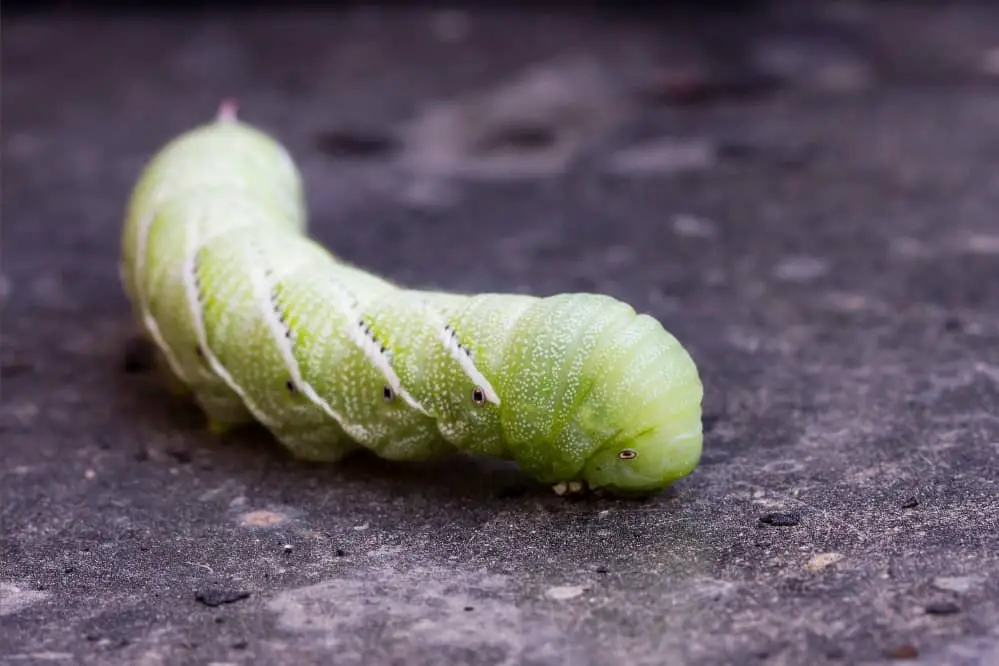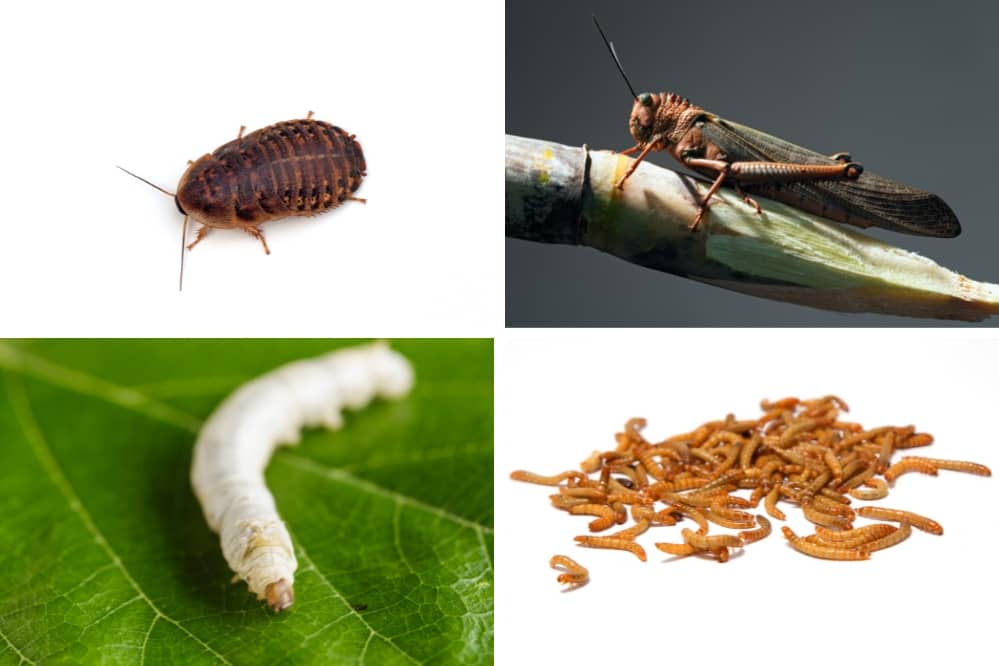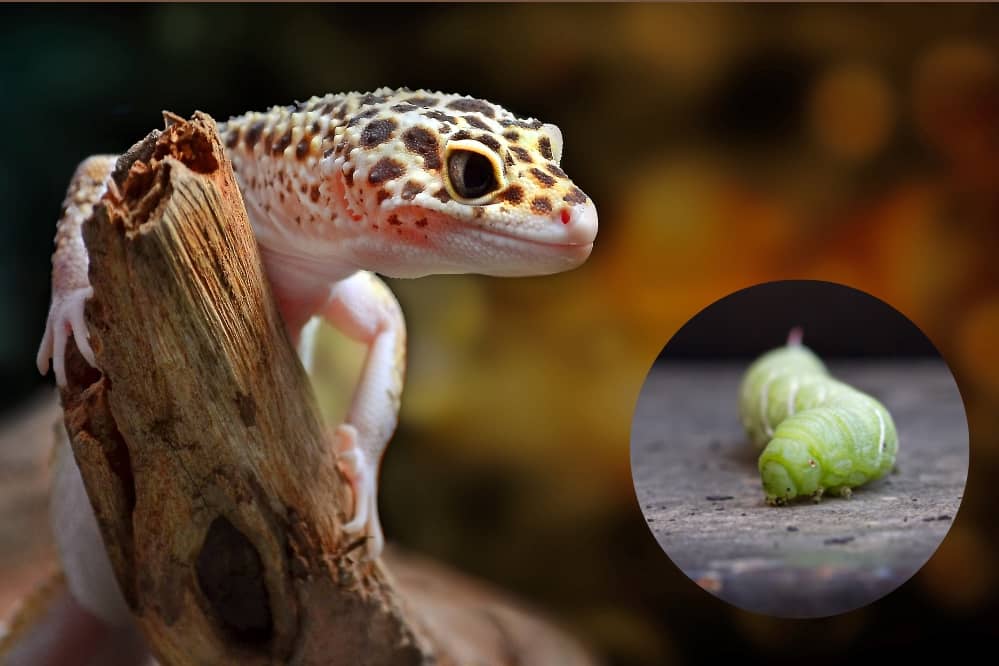Leopard geckos are fascinating reptiles, and the best way to keep them healthy and active is to feed them a nutritious diet. If you own a leopard gecko, you might be curious about whether it can consume hornworms in addition to other feeder insects.
In general, leopard geckos can eat hornworms, and they appear to be one of their favorite insects to eat, to the point that some leopard geckos become addicted to eating hornworms. However, because they lack certain nutrients, hornworms cannot be fed as a staple insect to leopard geckos.
Read on to learn more about whether or not leopard geckos should be fed hornworms, as well as their benefits and drawbacks, in this blog post.
Are Hornworms Safe For Leopard Geckos To Eat?
Leopard geckos can consume hornworms that have been purchased from stores or raised in captivity and offered a suitable diet. As caterpillars, hornworms won’t sting or bite your leopard gecko.
Hornworms are not toxic by nature, but what they eat can make them toxic to geckos. For instance, dining on a tomato or tobacco plant can make a hornworm toxic for leopard geckos.
Therefore, never give hornworms to leopard geckos that are sourced from the wild because you never know what kind of plant they may have been eating. In addition, hornworms that have been caught in the wild or in fields may contain pesticides, fertilizers, or insecticides that could harm your reptilian friend.
Wild-caught hornworms may also contain bacteria and parasites that might infect your leopard gecko and cause serious illness.
How Often Do You Feed Hornworms to Leopard Geckos?
Hornworms should only be fed to leopard geckos once or twice a week at most. This is because hornworms lack certain nutrients that leopard geckos need for growth and normal body functions, therefore if they are fed hornworms too frequently, leopard geckos will suffer from nutrient deficiencies such as a lack of protein.
Since leopard geckos enjoy the taste of hornworms, feeding these insects too often will cause geckos to develop an addiction and they will refuse to eat any other insects which are more nutritious for them.
How Many Hornworms Can A Leopard Gecko Consume?
The number of hornworms that a leopard gecko can consume during a feeding session often depends on the gecko’s age and the size of the hornworms. An adult leopard gecko may often eat 4 to 6 fully grown hornworms at a time once or twice each week.

In one feeding session, juvenile Leo geckos can consume up to 8 little or medium-sized hornworms or 3 to 4 large ones. As hatchlings, leopard geckos should not be given large or medium-sized hornworms, yet they can be fed 1 to 2 small hornworms once a week.
What Are The Benefits Of Feeding Hornworms To Leopard Geckos?
The benefits of feeding hornworms to a leopard gecko include the following:
- In contrast to other feeder insects, hornworms have flashy colors that entice leopard geckos, and because they are sluggish, the gecko can easily catch and eat them.
- Because hornworms lack a hard exoskeleton, leopard geckos can easily digest them.
- Hornworms have a high moisture content which makes them an ideal food for geckos that are sick and dehydrated.
- Hornworms are a good source of calcium for leopard geckos.
- Hornworms come in a variety of sizes, allowing you to feed leopard geckos of different ages and they already contain the nutrition they require in the container in which they come in, so you don’t need to store or feed them.
Are Hornworms Considered Nutritious For Leopard Geckos?
Hornworms are not considered highly nutritious insects to feed leopard geckos since they lack certain nutrients. The key nutrient that hornworms are deficient in is protein; they only contain 9% protein, which is significantly less than other feeder insects like butter worms, mealworms, super worms, etc.
Since they contain more protein than earthworms, feeding hornworms to your leopard gecko is preferable to feeding earthworms or other low-quality insects. The good thing about hornworms is that they are rich in calcium and contain a decent percentage of fat which is healthy for a leopard gecko.
Can Juvenile Leopard Geckos Consume Hornworms?
Yes, juvenile leopard geckos can safely eat hornworms, but only small or medium-sized ones. Large hornworms may be too big for a juvenile leopard gecko to eat and ingest, and they may also present a choking hazard for young geckos. Hatchlings or baby leopard geckos can also eat very tiny hornworms.
Can Leopard Geckos Eat Hornworm Pupae?
Though hornworm pupae are not the ideal meal for leopard geckos, they can still consume them. Hornworm pupae are safe for geckos to consume until or unless they become too hard or are too large to fit into their mouths.
However, it is recommended to not offer hornworm pupae to babies or juvenile leopard geckos since they can choke on them. Though, it’s better to remove the tough exterior of a hornworm pupae before feeding it to your adult leopard gecko so that it can easily eat the soft larva inside.
What Are The Disadvantages Of Feeding Hornworms To Leopard Geckos?
Following are some of the disadvantages of feeding hornworms to leopard geckos:
- Some leopard geckos may develop a hornworm addiction and refuse to consume any other insects, making them susceptible to nutritional deficiencies.
- In comparison to certain other feeder insects, hornworms can be pricey.
- Hornworms have a lower protein content than other feeder insects, which is insufficient for leopard geckos to grow properly.
- Since the larval stage of hornworms is short, you cannot keep them for more than two months.
- As they grow in size quite rapidly, they are not the best insects to feed to babies and immature leopard geckos in the long run.
- Hornworms typically feed on sweet sap, making it extremely challenging to gut-load them.
What Are The Best Insects To Feed Leopard Geckos Instead Of Hornworms?
Some of the best insects that can be fed to leopard geckos instead of hornworms are:

- Dubai roaches
- Commercially-raised crickets
- Locusts
- Mealworms
- Super worms
- Silkworms
- Waxworms
- Butterworms
Summary
Leopard geckos can be safely fed hornworms, and they really enjoy them. Hornworms are a great source of calcium for leopard geckos, but they shouldn’t be fed to them regularly; instead, occasional feeding is advised, ideally once or twice a week.
Due to their lack of protein, hornworms are a less desirable option when compared to other feeder insects that provide a high nutritional value. However, you must avoid feeding your leopard gecko hornworms that are sourced from the wild as they can be toxic.

